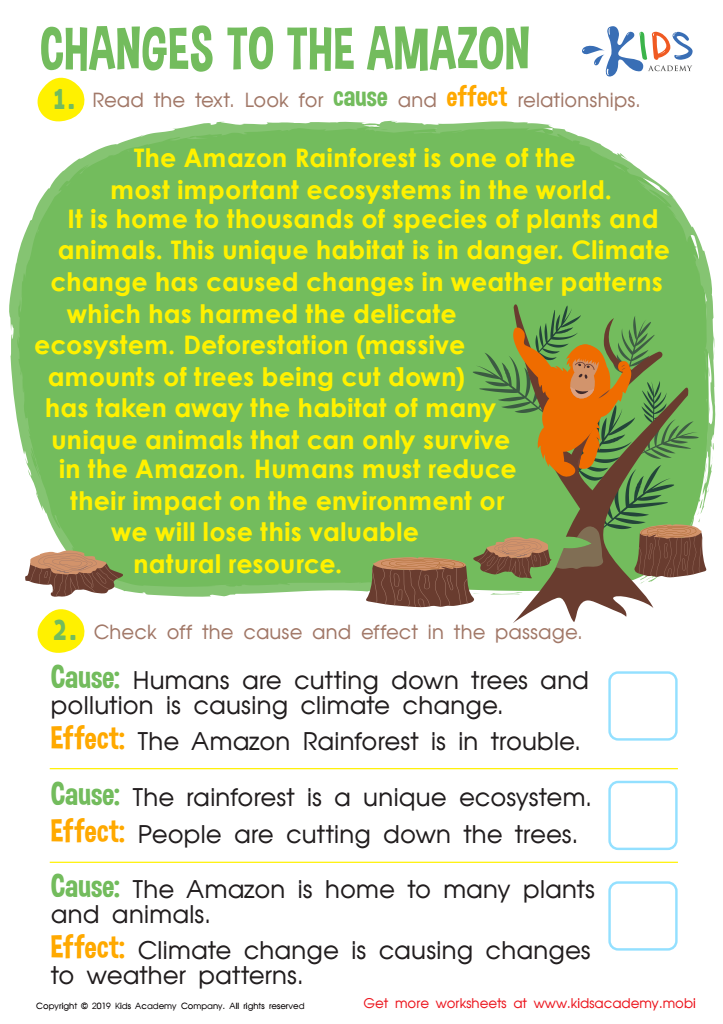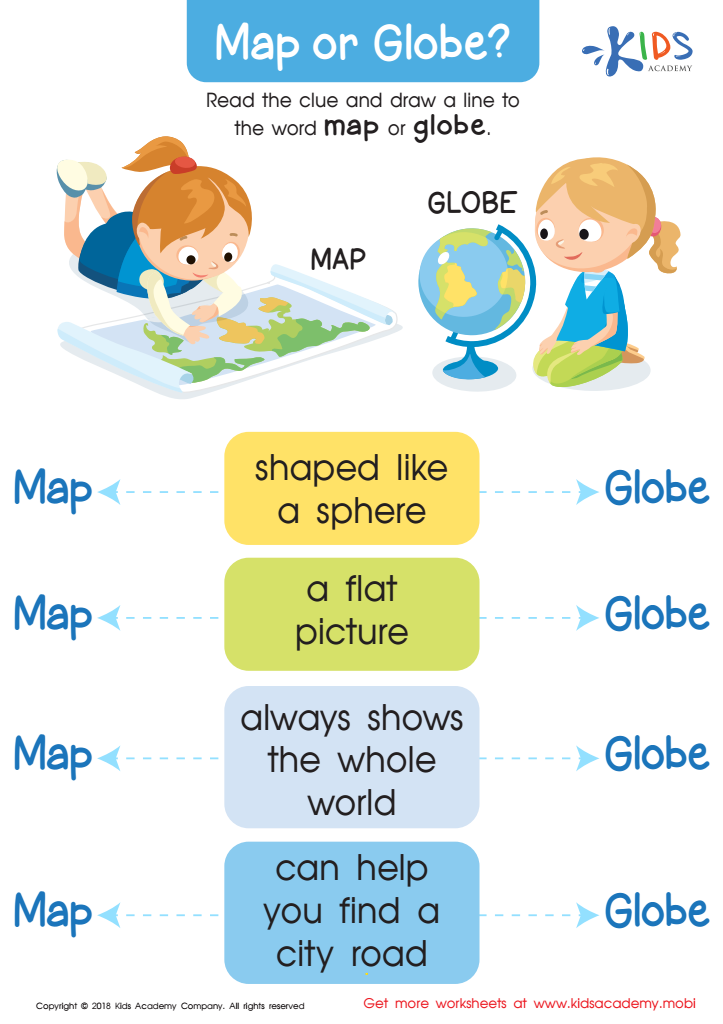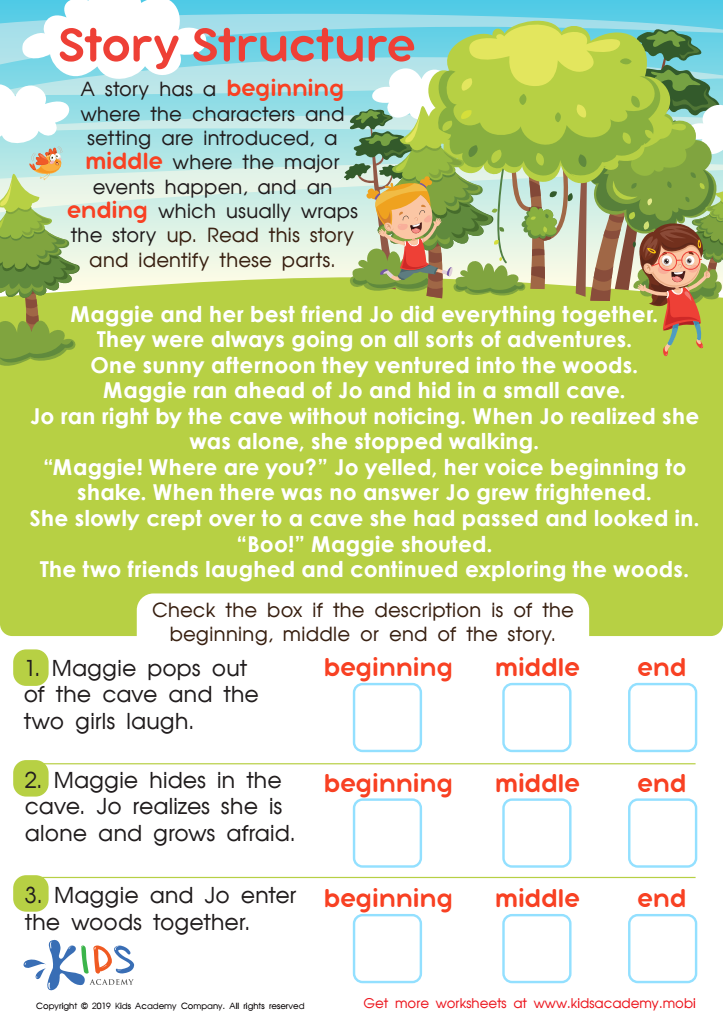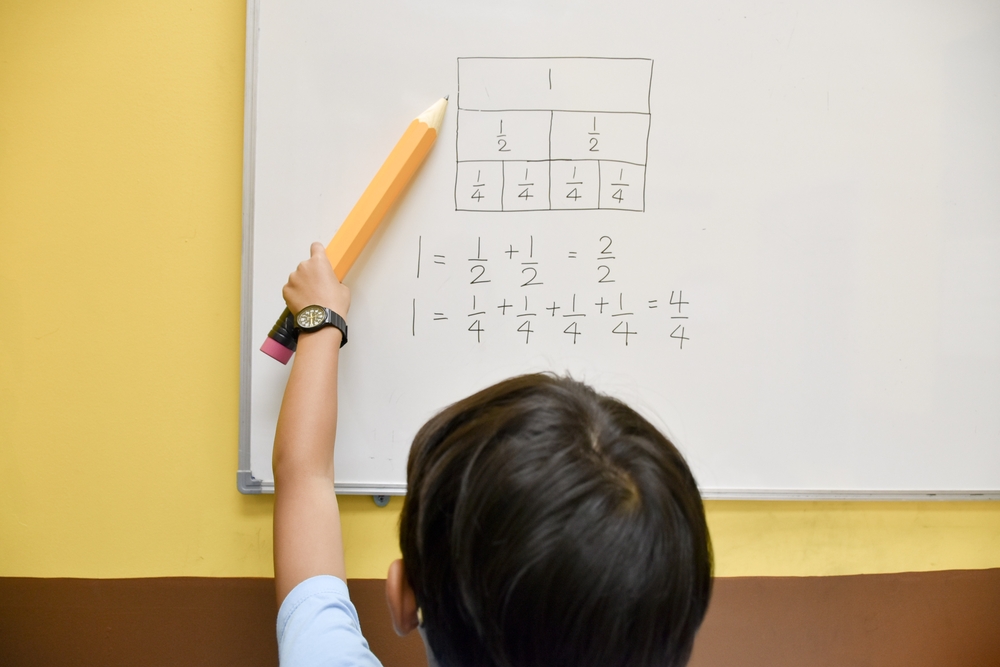Improving critical thinking Normal Worksheets for Ages 7-9
5 filtered results
-
From - To
Enhance your child's cognitive abilities with our "Improving Critical Thinking Normal Worksheets" designed specifically for ages 7-9. These engaging worksheets encourage young learners to analyze, evaluate, and solve problems through fun exercises. Each worksheet is crafted to promote logical reasoning, creativity, and decision-making skills. By tackling real-world scenarios and thought-provoking questions, children can develop essential critical thinking skills while enjoying the learning process. Perfect for use at home or in the classroom, our resource aims to foster independent thought and boost confidence. Explore our collection today and support your child's journey towards becoming a thoughtful and resourceful lifelong learner!


The Constitution Worksheet


Changes to the Amazon Worksheet


Pollinator Positions Worksheet


Map or Globe? Worksheet


Story Structure Worksheet
Improving critical thinking skills in children aged 7-9 is crucial for their holistic development. At this age, children are beginning to form their own opinions, make decisions, and solve problems independently. By nurturing critical thinking, parents and teachers equip them with the ability to analyze information, evaluate evidence, and question assumptions, which is essential in a world overflowing with information.
Critical thinking also enhances creativity, as children learn to connect seemingly unrelated ideas and think outside the box. This process fosters resilience and adaptability; they become more comfortable with uncertainty and better at navigating challenges. Furthermore, critical thinking nurtures effective communication, as children articulate their thoughts and engage in discourse with peers.
In an educational setting, encouraging these skills can lead to improved academic performance, as students become more engaged and capable of understanding complex concepts. For parents, fostering critical thinking promotes better decision-making habits that extend beyond academics, influencing everyday life and social interactions. In essence, helping children develop critical thinking abilities prepares them not just for school but for life, empowering them to become thoughtful, informed, and responsible individuals in an increasingly complex world.
 Assign to My Students
Assign to My Students





















